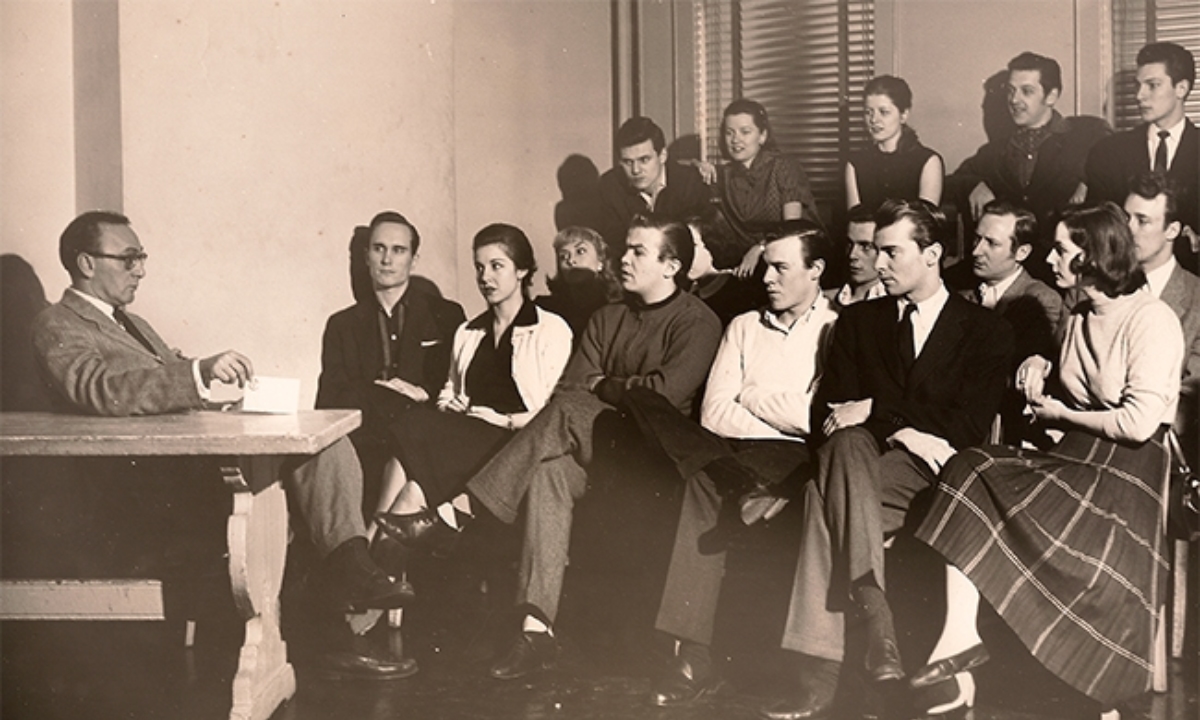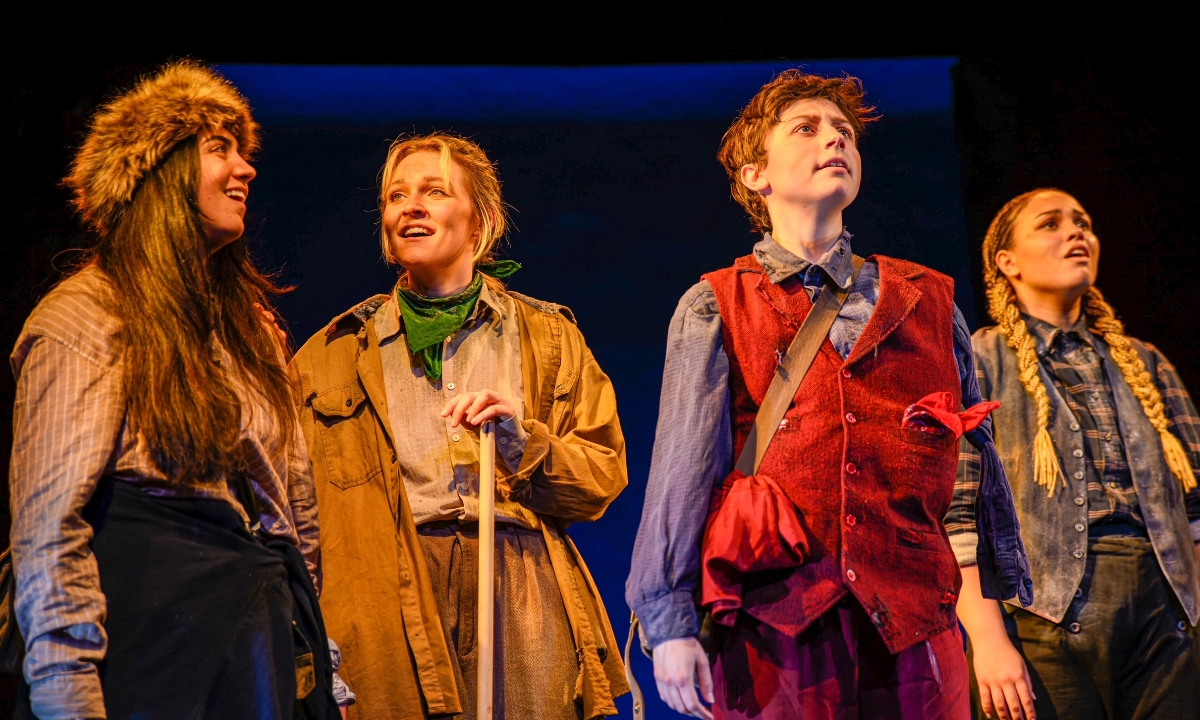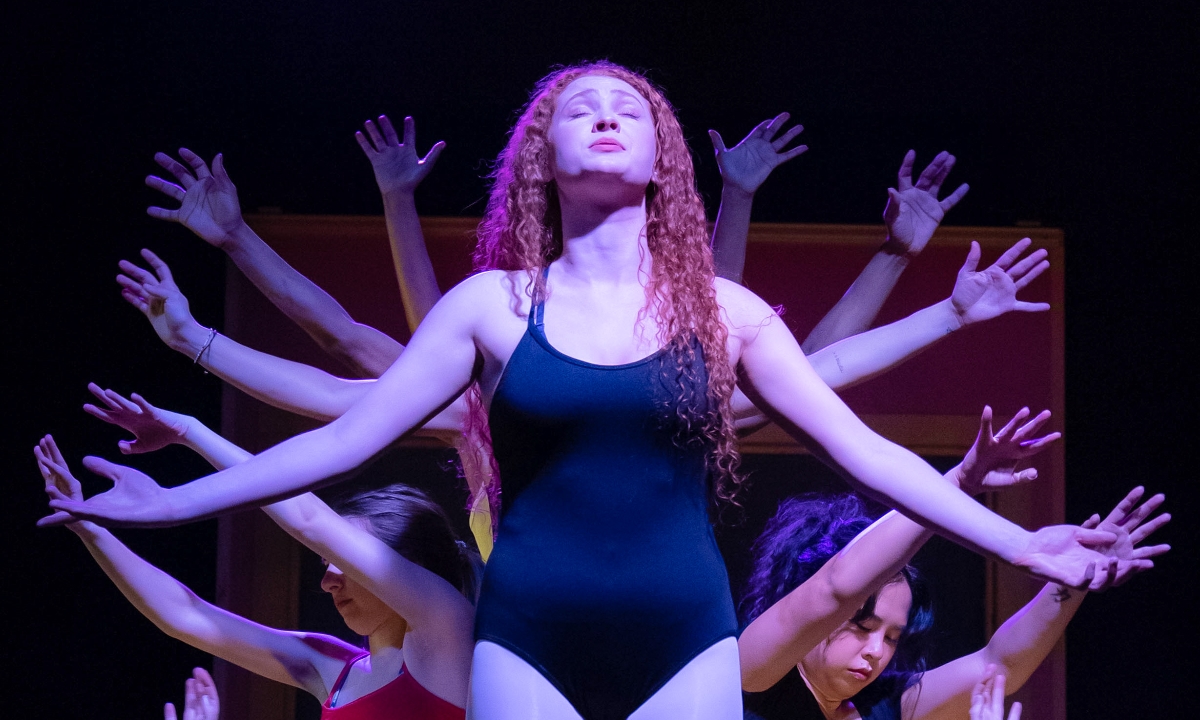The Second Year Program
Over the second year, the work moves into more advanced improvisational work, character work, and script analysis of increasingly complex and emotional modern texts. Students continue to deepen their work in voice & speech, music, dance, Shakespeare, and physical theatre, as well as adding courses in acting for camera, the business of acting, and more.
The second year culminates in the application of performance techniques in a public presentation. Programs range from a professionally produced Industry Showcase — which is dristributed to leading agents, managers, and casting directors throughout all of North America — and full-length plays that are open to the general public in New York City.
Admission to the second year is granted from the first year program by approval of the faculty and administration.
Second Year Courses
Curriculum: Second Year
Total Length: 32 Weeks | Full-Time (approximately 32hrs/week)
Meisner Acting Techniques II (12hrs/week)
Students continue to build upon the first year of Meisner Acting Technique I using advanced improvisational technique and interpretation. Students master advanced character work and apply their training to dramatic text from both classic and modern scripts with the goal of becoming specific, skilled, and authentic actors capable of performing in theatre, film, television, and all forms of media.
Shakespeare II (3hrs/week)
Students learn the skills needed to master the technical demands of Shakespeare’s text and the particulars and challenges of classical technique. Attention is paid to active engagement with breath, vocal technique, verse, prose, rhetoric, style and the marriage of classical form with imaginative, truthful, honest acting.
Acting for Film & Television (3 hrs/week)
Prepares students to translate their acting through the lens of the camera and meet the professional demands of the industry. Students will work on monologues, scenes, and audition materials. The work will be filmed, reviewed and critiqued so that students learn to spontaneously internalize direction. Topics covered include voiceovers, auditioning, technical vocabulary, and performance techniques.
- Voiceover - A practical overview of work available in the voice-over acting field and the tools and techniques to pursue that work. Primary focus will be on radio and television commercials, though students will also be exposed to promos, recorded books, animation, narration, PSAs, industrials, and video games.
- Auditioning for Film & Television - Students are taught a hands-on approach to auditioning for all work in film, television, and other media. The particular unit in the Acting for Film & Television course will include camera technique and the art of the sell from both a corporate and personal point of view.
Alexander Technique II (1.5hrs/week)
Group and individual training in the specialized field of Alexander Technique, with special attention to problems of posture, relaxation, and preparation as it relates to the actor. Special combined classes with the Voice/Speech Department are also undertaken.
Jazz Dance II (3 hrs/week)
Training in movement and techniques applicable to contemporary musical theatre. Emphasis on learning the basic vocabulary and choreography of giants in this American movement style including Bob Fosse, Michael Bennett, and Agnes de Mille.
theatre history ii: contemporary playwrights
Students continue their study of dramatic literature with an emphasis on contemporary playwrights focusing on race, gender, and theatrical movements. Through readings scripts, theories & essays, and attending productions of plays, students deepen their understanding of the theatrical landscape and movements.
Modern Dance II (3 hrs/week)
Building upon the principles of Martha Graham’s technique learned in the first year, Modern Dance II has been designed specifically for the second year of the actor's training here at The Neighborhood Playhouse. Students begin incorporating improvisation with text to build individual movement studies. Attention is placed on honing the actor’s ability to move and express in a more sophisticated manner. The course culminates in a demonstration of work for faculty and students.
Music II / Acting on Pitch (3hrs/week)
Building upon the skills and principles learned in Music I, this course exposes students to a wide variety of musical theater literature and material carefully selected in conjunction with his/her vocal abilities. Emphasis is placed on performing traditional and contemporary Broadway repertoire with some exposure to pop/rock songs. Skills developed include: vocal strengthening through a series of musical warm-ups; selecting and properly marking sheet music of a “16 or 32 bar cut” to best showcase the voice; exploring song and character analysis and the “given circumstances” in which the performer finds him or herself. Each student completes the course with a personal repertoire book, to use in future auditions, and a performance in the winter musical demonstration, a fully produced show open to the public.
Physical Theatre II (3hrs/week)
This course explores the practice and practical application of Jacques Lecoq’s performance theory and techniques. Beginning with a systematic introduction to Lecoq’s movement training, students are taken through practical exercises and improvisations designed to investigate Lecoq’s collaborative and physical approaches to the chorus (developing ensemble and presence onstage), “Le Jeu” (the in-the-moment interplay between actors that keeps performance alive and compelling), Mimodynamics (observing and understanding dynamic movement structures in the world in order to create truthful characters and dynamics onstage).
Professional Development (approx 1 hr/wEEk)
- Guest Artists/Business of Acting Seminar Students meet with various working professionals (casting directors, directors, writers, screenwriters, actors, producers, etc.) to learn the ins-and-outs of presenting themselves to the professional world.
Voice II and Speech II (3 hrs/week)
Continued and advanced training to develop a professional vocal instrument that has a wide range of expression and can meet the demands of all performance mediums. Advanced vocal training in classical drama and poetry with special attention to the use of metaphor, rhyme, rhythm, and meter.
Prices, curriculum, curriculum hours, and faculty subject to change.


